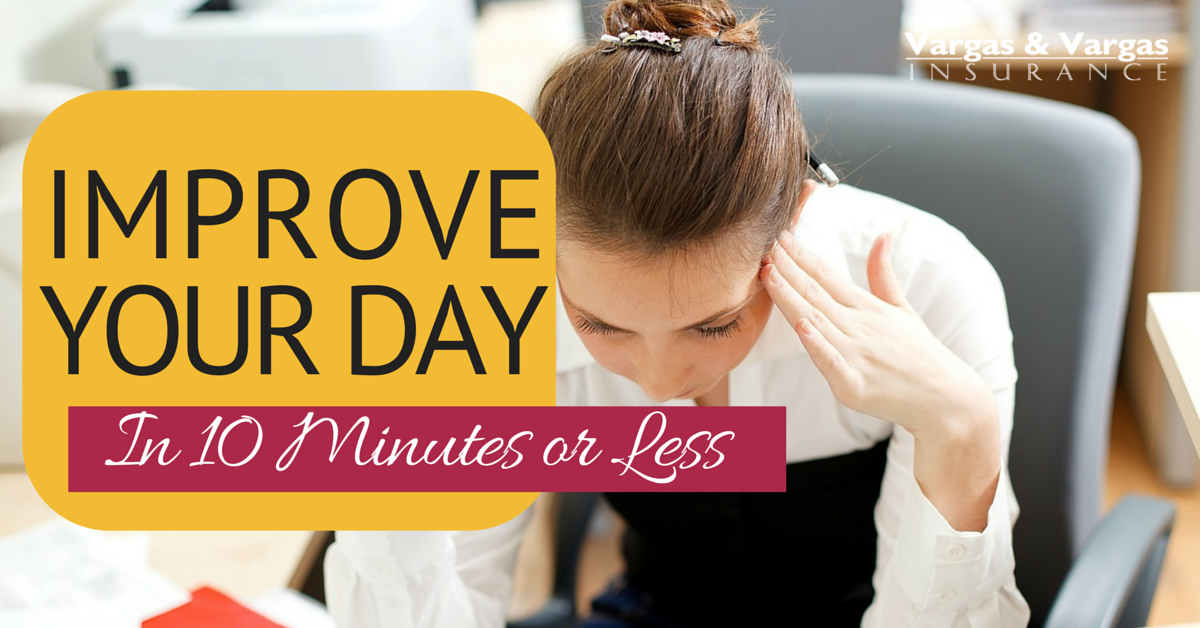Improve Your Day in Ten Minutes or Less | Blog | Vargas & Vargas Insurance

In today’s world, everyone is busy. Would you be able to take 10 minutes out of your busy schedule in order to improve your day? That’s less than 1% of your day! Next time you’ve got a free moment (whether it’s first thing in the morning, between tasks at work, or before you go to bed) try one of the following activities and find something that works for you and your routine:
Meditate – One of the easiest ways that you can improve your day is to take a handful of minutes to just slow down and breathe. Find a quiet place within yourself, and let your thoughts flow freely. For some help, try calm.com for a timed guided meditation.
Do a Quick Workout – Whether you’re at home or at work, you always have time for a ten minute workout. Not only will they help you burn a few extra calories and stay fit, but they will also help boost your energy and improve your mood.
Get Some Fresh Air – If it’s a nice day out, spend some time outside. Take a friend or a canine companion on a walk (or go by yourself). Play catch outside with your kids. Regardless, you may notice your mood improve significantly due to the change of scenery and light activity.
Read Something – Obviously ten minutes isn’t enough time to get anywhere in a novel, but it’s the perfect opportunity to read a blog or news article (like this one!) during a break. Take the time to learn something new and take a break from focused activities.
Check in with a Loved One – It doesn’t take more than a few minutes to send an email or text message to a friend or family member. In just ten minutes, you can improve your relationship with someone that you love, and feel great about it too!
Clean Up Your Space – Cleaning and organizing your home or office may seem like a huge chore, but you may be surprised by how much of a difference you can make in just ten minutes a day. Having a tidy space will also improve your mood and could even increase your productivity.
Sort Your Thoughts – It’s important to unwind and organize your thoughts each day. Some do this through meditation, as mentioned earlier, but other people prefer methods like journaling in order to sort out their thoughts and feelings of that day’s events.
Release Stress – Take a few minutes each day and release the tension that’s been building in your body for the last 24 hours. To some, this may mean playing a video game. To other’s it’s a hot bubble bath. Find how you best relieve stress and give yourself ten uninterrupted minutes of that activity each day.
Want another way to improve your life in just a few minutes? Call Vargas and Vargas Insurance Agency for an insurance review. We can look at your home and auto insurance policies to determine if you have the right coverage at the right price. Talk to an experienced Boston insurance agent by calling 617-298-0655 .


